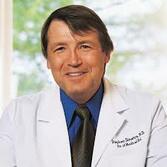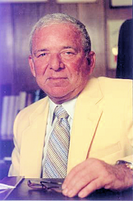The recent headline in a daily newspaper (April 2019) proclaiming ‘statins don’t work’ must have struck fear into the heart of the pharmaceutical industry. Statins are very big business. They have been the most profitable drugs ever, and are the most widely prescribed cholesterol-lowering drugs in the world. Revenue for statins is still expected to rise, with total sales on track to reach an estimated 1 trillion US dollars by 2020. But is the public at last becoming sceptical about the pharmaceutical industry’s biggest money spinner?
|
CHOLESTEROL NOT THE CAUSE OF HEART DISEASE
Lowering cholesterol levels by medication has always been a bone of contention and the advice to avoid saturated fats has been questioned right from the start. Heart surgeon Dr Dwight Lundell blamed inflammation as the root cause of heart disease not cholesterol. He stated "without inflammation being present in the body, there is no way that cholesterol would accumulate in the wall of the blood vessel and cause heart disease and strokes. Without inflammation, cholesterol would move freely throughout the body as nature intended. It is inflammation that causes cholesterol to become trapped. ‘Forget the "science" that has been drummed into your head for decades. The science that saturated fat alone causes heart disease is non-existent. The science that saturated fat raises blood cholesterol is also very weak. Since we now know that cholesterol is not the cause of heart disease, the concern about saturated fat is even more absurd today."  Dr Stephen T. Sinatra MD Dr Stephen T. Sinatra MD
"RISK OF MEMORY LOSS
In their book" The Great Cholesterol Myth", co-authors Jonny Bowden PhD and Stephen T. Sinatra, M.D., believe that low cholesterol levels can be more dangerous than high levels, in fact, the older you get the more dangerous it is to have a low level. A falling or low level cholesterol is a sign of underlying disease, thus it is not the low level that may kill you but the underlying disease. Dr.Sinatra acknowledges that while statins act as effective anti-inflammatory drugs, they come with too many negative side effects and these are a cause for concern. He observes ‘Your brain is made mostly of fat, and needs cholesterol to regulate your mood and help you think. Memory loss is another frequent side effect of statin use, most likely due to cholesterol levels being too low. I don’t know about you, but I’d take higher cholesterol over cognitive decline any day.’ LOW LEVELS OF CHOLESTEROL NOT ALWAYS DESIRED A 15 year study (1985–1999) carried out in Vorarlberg, Austria followed nearly 70,000 men and more than 80,000 women ranging from 20 to 95 years of age who underwent, between them, more than 450,000 examinations. The results showed that in men, across the entire age range…and in women from the age of 50 onward only, low cholesterol was significantly associated with all-cause mortality, showing significant associations with death through cancer, liver diseases and mental diseases. COMMERCIAL AND POLITICAL INTERESTS The much respected Weston Price Foundation explains, ‘Cholesterol is one of the most important substances in the body. We cannot live without it, let alone function well. The pernicious diet-heart hypothesis has vilified this essential substance. Unfortunately, this hypothesis has served many commercial and political interests far too well, so they ensure its long survival. However, the life of the diet-heart hypothesis is coming to an end as we become aware that cholesterol has been mistakenly blamed for the crime just because it was found at the scene." Cholesterol is in every cell, and so much is needed for proper body function that it would be impossible to eat enough of it in your diet to satisfy your daily cholesterol needs. To meet this gap the liver manufactures four or five times as much cholesterol as you ingest. The liver adjusts the level in relation to the amount of cholesterol that you eat, so if you ingest high levels of cholesterol then the liver produces less to compensate. We interfere with this process at our peril. |
PRIME BODY FUNCTIONS FOR WHICH CHOLESTEROL IS NEEDED
Brain synapses. The vital connections between nerve cells in the brain, and elsewhere, are made almost entirely of cholesterol. It is essential for proper neurological function and plays a key role in the formation of memory and the uptake of hormones in the brain, including serotonin, the body’s feel-good chemical. Vitamin D. Cholesterol is the major building block of vitamin D. This important vitamin is not only needed to create healthy bones, but is now known to be protective against a number of cancers. Vitamin D is synthesized from cholesterol by the action of sunlight on the skin. Misguided fear of the sun and avoidance of cholesterol rich foods has led to an epidemic of Vit.D deficiency in the Western World.’ Cell membranes. All cells in the body need cholesterol in their cell membranes. Without it they would disintegrate, as cholesterol provides structural integrity. Sex hormones. Cholesterol is a building block for most sex hormones. Bile. Cholesterol is a key component of bile salts, which are released from the gall bladder to help with food digestion, especially fats. Repair. Cholesterol is the body’s repair substance: scar tissue contains high levels of cholesterol.  Professor Paul J. Rosch Professor Paul J. Rosch
PUBLIC HAVE BEEN BRAINWASHED
Dr. Paul J. Rosch “A massive crusade has been conceived to "lower your cholesterol count" by rigidly restricting dietary fat, coupled with aggressive drug treatment. Much of the impetus for this comes from speculation, rather than any solid scientific proof. The public is so brainwashed, that many people believe that the lower your cholesterol, the healthier you will be or the longer you will live. Nothing could be further from the truth. ‘The cholesterol cartel of drug companies, manufacturers of low-fat foods, blood-testing devices and others with huge vested financial interests have waged a highly successful promotional campaign. Their power is so great that they have infiltrated medical and governmental regulatory agencies that would normally protect us from such unsubstantiated dogma.’ Professor Rosch observed that practising physicians get most of their information from the drug companies. However, compared to their peers a half century ago, most doctors don't have the time or skills to critically evaluate reports, very few know anything about research, nor did the generation that taught them. |
